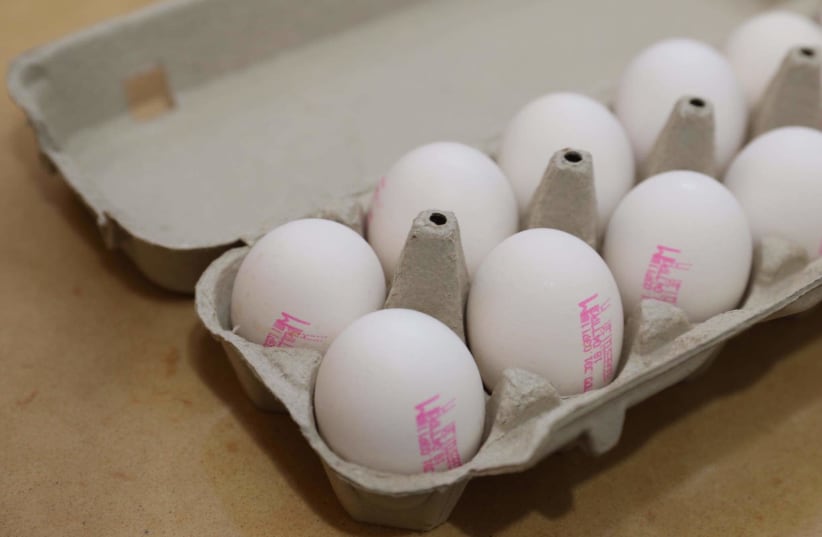Israeli consumers have discovered that eggs are almost nowhere to be found on store shelves. Many stores that do have eggs are rationing them. Our local supermarket is allowing only one tray per customer, and even those single trays are hard to come by.
Yet Israel has a large number of modern poultry farms that could easily provide all of the domestic demand at competitive prices. The problem is that it is a criminal offense for them to do so.
In most of the economy it is illegal for producers to organize a cartel, which limits output and divides it among producers in order to raise prices and profits. But in the curious mirror-glass world of Israeli agricultural policy, it is illegal to defy the cartel that does exactly that. Each producer is given a strict limit on the number of egg-laying chickens it is allowed to raise.
Another problem with Israeli egg production is hygiene. Small dairy farms are unusually vulnerable to avian pathogens (like the 2006 avian flu which wrought havoc in Israeli poultry farms) and human ones, like salmonella.
We might think that the problem is that the Agriculture Ministry is not doing enough to prevent these vulnerabilities. But again, in the topsy-turvy world of Israeli agricultural policy, the actual problem is that the ministry is actively sustaining these farms.
The most vulnerable farms are also the least efficient; mechanization is the key to both saving costs and avoiding pathogens. Without quotas, these small, inefficient, health-vulnerable farms would rapidly disappear of their own accord. But the ministry guarantees a huge fraction of the quotas to exactly these producers, ensuring that eggs remain expensive, in short supply and risky.
Why is Israeli egg production organized in an official cartel? One reason often given is “food security” - ensuring that local production is sufficient to supply our needs in times of emergency.
This pretext is obviously flawed. Now we are in a time of emergency and it is precisely because of this rigid regime that we have a shortage of eggs. Israeli security services are busy scouring the world for eggs when local capacity has ample ability to supply our needs.
Another reason often given is to encourage settlement in border areas. But this claim is also easily refuted. There are no more than 2,000 individuals employed as poultry farmers in remote areas. Experience shows that most of them would stay put even without the quotas.
There are far better ways of encouraging a few hundred Israelis to dwell in border areas than making eggs expensive and unavailable for nine million residents.
The ideal solution to providing an ample, inexpensive and healthy supply of eggs to the Israeli public is to immediately eliminate the quota system and the import restrictions which enforce the current problems. At the very least, the agriculture minister should greatly increase the quotas, ensuring that the efficient and sanitary modern farms are able to ramp up production and provide sufficient supply in times of both normal and peak demand.
The author is the head of the economic department at the Kohelet Forum.
